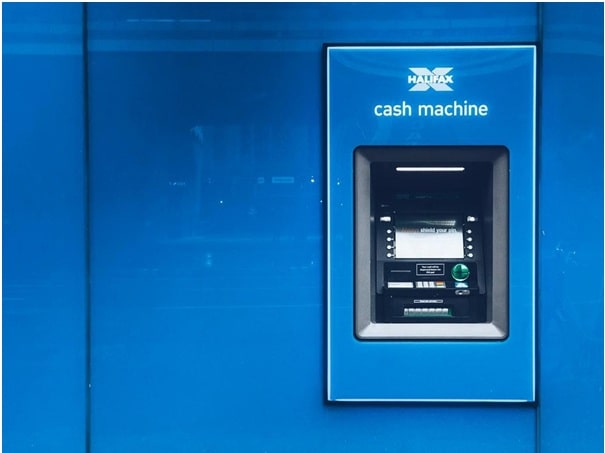As long-term financial consequences of the coronavirus begin to unfold, the U.S is now facing a recession with the biggest unemployment rate and swifter economic destruction than the financial crisis and even the Recession that started in 2007.
During this period, more than 30 million Americans have lost their jobs due to coronavirus, and the number is expected to rise. That combined with credit card balances reaching a $930 billion high, along with $9.56 trillion in mortgage balances at the end of the previous year, it is not surprising to learn that bankruptcy court is preparing for a wave of filings in the near future.
No one likes being in debt; in fact, the idea of owning to a creditor is enough to send anyone into a downward spiral that can leave you huddled on the kitchen floor in tears. Debt can be a devastating wave that once left unmanaged, it can affect your credit score, leaving you financially money sunk. But stressing won’t get you anywhere. Yet there are numerous solutions available for you to analyse your current situation and sort out a debt reduction strategy that will give you the peace of mind that you’re moving in the right direction.

Table of Contents
Organize your Existing Debt
Learning where you stand financially is the first step in implementing a steady plan. Where to start? Round up your financial paperwork and print out a credit report from sources such as NerdWallet, so you can analyze in depth which debts are causing you the biggest financial damage. Make sure you note all your balances, including interest rates, outstanding debt, and your minimum monthly repayments.
Manage finances
This one is as simple as it sounds. All you need to do is to take a look at your monthly budget and costs and identify expenses and lists of items or services you can cut out. Are you an avid smoker? Consider both the financial and health benefits of quitting smoking. Giving up smoking for a month can work wonders for your debt. Oftentimes, discipline and self-control are vital as they will help you not to give in to temptation and dig yourself deep into debt. Whenever you find yourself in need to purchase something unessential, stop and ask yourself if you really need that new dress or the new iPhone when you’re trying to regain your financial control.
Always Prioritize Your Bills
If you’ve recently started to drown in debt, there might still be an opportunity to recover. Leslie Tayne, an experienced debt attorney in New York, stated that taking a step back and learning how to prioritize your bills could be a good start to regaining financial balance.
Learn to prioritize. Always keep an eye on your spending behaviours and spend only on the absolute essentials that you and your family need the most. For instance, when paying bills, make sure you always put first your rent, mortgage, groceries, clothing, and transportation.
Try Credit Counselling
If you’re in doubt regarding the way you manage your financial situation, you can seek a credit counsellor anytime. This can provide you with a handful of services, including help with getting on a debt management plan. Debt management plans are a type of debt relief where a company works on your behalf to minimize your monthly payment, lower interest rate, and provide you with a reasonable payment schedule.
That being said, it’s crucial to take notice of any fees a credit counselling agency may charge you when using their services. According to the National Foundation for Credit Counselling, any organization should be very informative about its fees. Additionally, consumers have to be diligent in asking how these payments will be used, when they will be distributed to creditors and if the organization works with all creditors, not just a few of them.
Consider a debt relief program
How do they work? Debt relief programs offer consumers a fair and accessible way out of their financial problems. These programs help individuals make payments they can afford while simultaneously minimizing and eventually eliminating the debt. Why choose a debt relief Canada program rather than doing it by yourself?
- People often find it hard to negotiate with their creditors.
A debt relief program has experts and experienced negotiators that know how to handle creditors. Usually, debt relief programs are meant to take hassle and concerns out of a fraught situation. Moreover, because lots of debt relief organizations deal with a lot of debt in various accounts, they have more influence and bulk their deal to obtain better settlements.
- Following a debt relief plan is all about strategy and discipline
For those already facing a debt situation, it can be challenging. It isn’t easy to build a plan and a strategy by yourself. On top of that, having to stick with a rigorous saving schedule and decide which debt to resolve first and for what amount can be highly demanding.
- When you stop paying your creditors, they often start harassing you
People rely on debt relief agencies as they can provide realistic solutions to deal with collectors without feeling harassed. Keep in mind that there are numerous laws regarding how creditors and collection agencies can and cannot contact you. The purpose of a debt relief agency is to have creditors contact them for payments and negotiations rather than contacting you.
Often, there are steps you can take to prevent bankruptcy that you might not be aware of. These steps, which involve negotiating your debt, can prevent you from having to liquidate all of your valuables in a bankruptcy filing or leave with a bankruptcy notification on your credit report for the next ten years. Filling up a bankruptcy should be the last step you take regarding your personal finances.
To prevent this from happening, we advise you to start prioritizing your spending and focus only on the essentials for a while or at least until you’ll get back on track.




